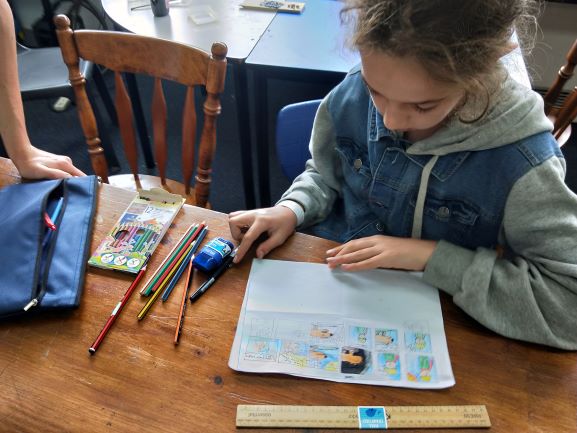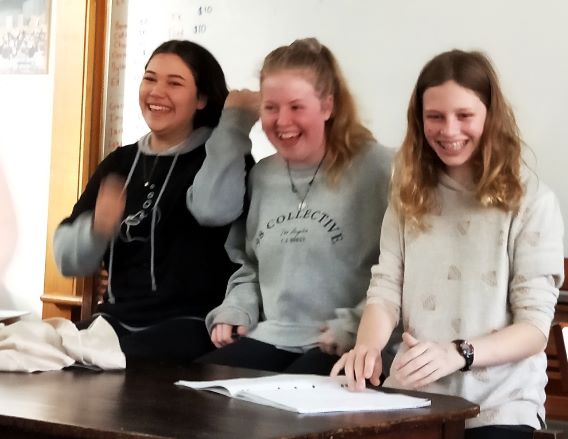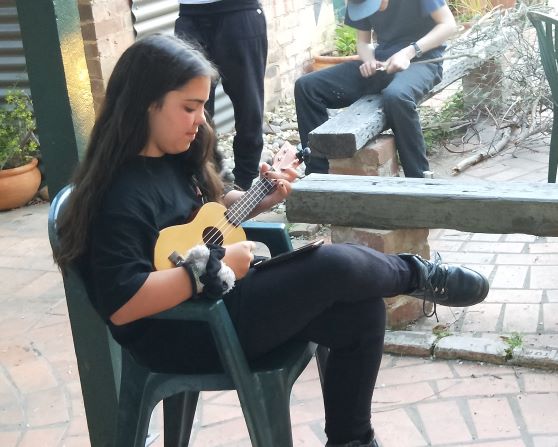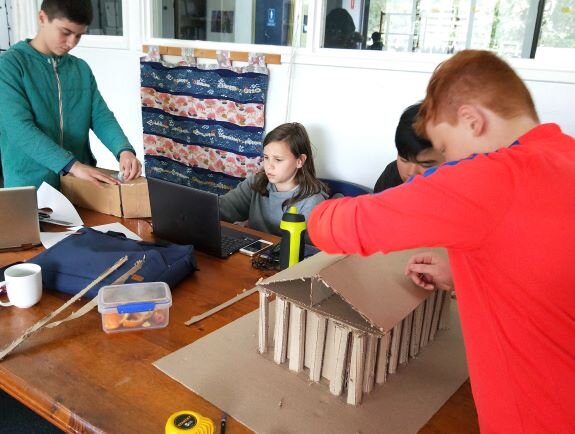Curriculum for MAP@TC
Our curriculum is designed to engage adolescents in a close community and meaningful work. It combines the Victorian curriculum with the nationally approved Montessori curriculum. All MAP@TC students take two elective subjects outside their core Montessori subjects. The core subjects – Language, Numeracy, Occupations and Humanities are delivered in a multi-disciplinary manner (i.e.: they not only overlap, they cannot be fully distinct from each other). The curriculum covers a full three years and cannot be accessed on a piecemeal basis.
Core disciplines
Language is best understood as Literacy. The focus is on classical and beautiful writing and communication, on exploring the themes and author endeavours to uncover deepened understanding, analysis and comprehension.
Numeracy is treated as a language, a history and a philosophy, as well as covering all the curricular needs of algebra, number, measurement, etc. It is taught in varied methodical approaches across our three classrooms.
Occupations is project-based science, where the questions and exploration come from a place of need. Meaningful, hands-on work provides challenges which need answers, many of them within the varied branches of science.
Humanities encompasses all the above plus any other occurrences in the history of human thought and development. We attempt to ask the big questions, and provide direct experience and interpretation, not answers.
In addition are allocations of time to focus on creative expression, physical expression, micro-economy and human health.

3-year cycle
The 3-year-cycle allows students to work to their strengths and passions at the times that these consume them. Our adolescents have three years in which they are exposed to all elements of the curriculum from year 7 to year 9. They are able to concentrate on specific ideas and learning tasks at individually and developmentally appropriate times.
The multidisciplinary curriculum enables students to see connections between areas of knowledge that are often artificially separated. This helps many in finding pathways into otherwise demanding areas, and further examining these at the most suitable time.
All core subjects have a three year planned curriculum, to avoid repetition. It enables seasonal and annual variations to Occupations, e.g.: vegetable gardening; construction; bush and land care; maintenance; harvesting and preserving; chickens; water management.
Ready for VCE
MAP students are continually assessed - against their own expectations and performances. Staff monitor their work and output in order to continually challenge them, to engage them in that level between work they can already manage and work that is actually beyond them. Students progress to VCE and further study as independent learners, as people willing to ask questions based on inquiry instead of fact. Study scores - the gold stars of VCE – of TC MAP graduates have been very high, and feedback from VCE teachers has been overwhelmingly positive. Most are excited to have MAP graduates in their classes. All MAP graduates to date have achieved entry into their desired tertiary courses, training or careers.

Electives – music – sport
Each MAP students two elective choices enables wider study, direct mixing with other TC students and other adult experts. Because it does reduce our core MAP time by 30%, there are areas within the Montessori curriculum we have selected to minimise. Chief among these are Creative and Physical Expression, Music and Micro-Economy. While these are important components of the MAP curriculum, helping students to develop skills and expertise in areas of personal interest that build confidence and passion, they are fully catered for in electives, by TC’s learning approach and in extra-curricular activities the vast majority of our students pursue. Given that these also provide a means to explore their emerging identities, a focus for physical energy, an exposure to a range of activities, and an opportunity to challenge themselves, we do include as much of these as possible throughout our core classes.

Continuous and individual assessment and support
The program does not use exams, since the goal is to assess students’ conceptual understanding and ways of thinking and working. Continual observation and ongoing assessment provide a very clear understanding of each student’s progress. Because teachers work with students over an extended period of time, they develop a good understanding of each student’s strengths, weaknesses and interests, and are better able to monitor progress of the individualised approach tailored to each student.
Students and teachers set objectives for different curriculum areas together, searching for ‘big picture’ issues and ‘great work’ projects. Mastery of understanding may be delivered by articulating and presenting a project in any means – e.g.: art, drama, music, a-v, game-play or teaching a lesson. Students are observed carefully in all activities and guided towards all areas of improvement.



